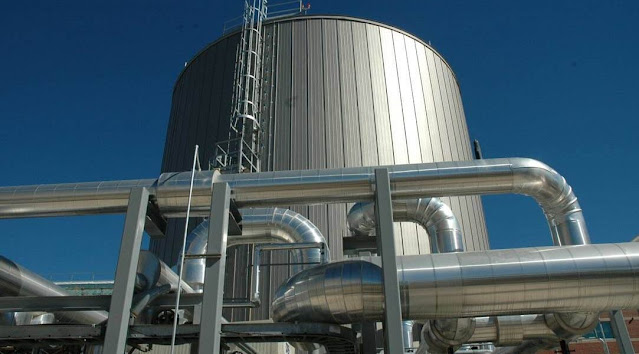Future-proofing Buildings with Chilled Water Storage Systems: Market Insights and Opportunities
In
today's rapidly changing world, the concept of future-proofing has become
essential in various industries, including the construction and real estate
sector. As sustainability and energy efficiency take center stage, building
owners and developers are increasingly looking for innovative solutions to
reduce environmental impact and optimize energy consumption. One such solution
that has gained significant attention is the integration of chilled water
storage systems into building designs.
Chilled
water storage systems are an advanced technology that involves storing chilled
water during off-peak hours when electricity rates are typically lower. This
stored chilled water is then utilized during peak demand periods, reducing the
load on cooling systems and optimizing energy usage. By implementing these
systems, building owners can achieve significant energy savings, cost reductions,
and environmental benefits.
The
Chilled
Water Storage Systems Market
insights surrounding storage systems are highly promising. With a growing focus
on sustainable practices and stringent energy efficiency regulations, the
demand for these systems is projected to witness substantial growth in the
coming years. According to industry reports, the global chilled water storage
systems market is expected to experience a compound annual growth rate (CAGR)
of X% during the forecast period.
One
of the key opportunities presented by chilled water storage systems is their
compatibility with renewable energy sources. By coupling these systems with
solar panels or wind turbines, building owners can further reduce their
reliance on the electrical grid and decrease carbon emissions. This integration
aligns perfectly with the global trend towards renewable energy adoption and
offers a competitive advantage to forward-thinking developers.
Moreover,
chilled water storage systems offer flexibility in building design and
operations. They can be seamlessly integrated into both new construction
projects and retrofitting initiatives, making them suitable for a wide range of
buildings, including commercial complexes, hospitals, data centers, and
educational institutions. The scalability of these systems allows for
customization based on specific cooling needs and enables future expansions or
modifications.
From
a financial perspective, chilled water storage systems present attractive
returns on investment. The reduction in energy consumption and peak demand
charges leads to significant cost savings over the system's lifespan.
Additionally, governments and utility companies often provide incentives and
rebates for adopting energy-efficient technologies, further enhancing the
financial viability of chilled water storage systems.
In
conclusion, future-proofing buildings with chilled water storage systems offers
numerous market insights and opportunities. As the world shifts towards
sustainable practices and energy efficiency, these systems provide a reliable
and efficient solution for cooling needs. With their compatibility with
renewable energy sources, flexibility in building design, and financial advantages,
chilled water storage systems are poised to play a crucial role in shaping the
future of the construction and real estate industry. Building owners and
developers who embrace this technology can not only reduce their environmental
footprint but also enhance their competitiveness in an increasingly
eco-conscious market.




Comments
Post a Comment